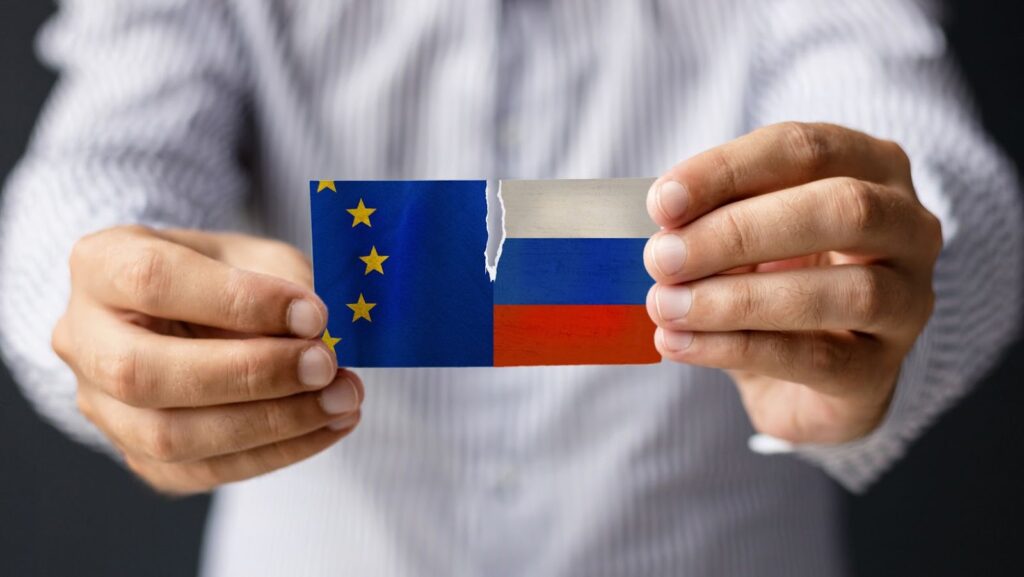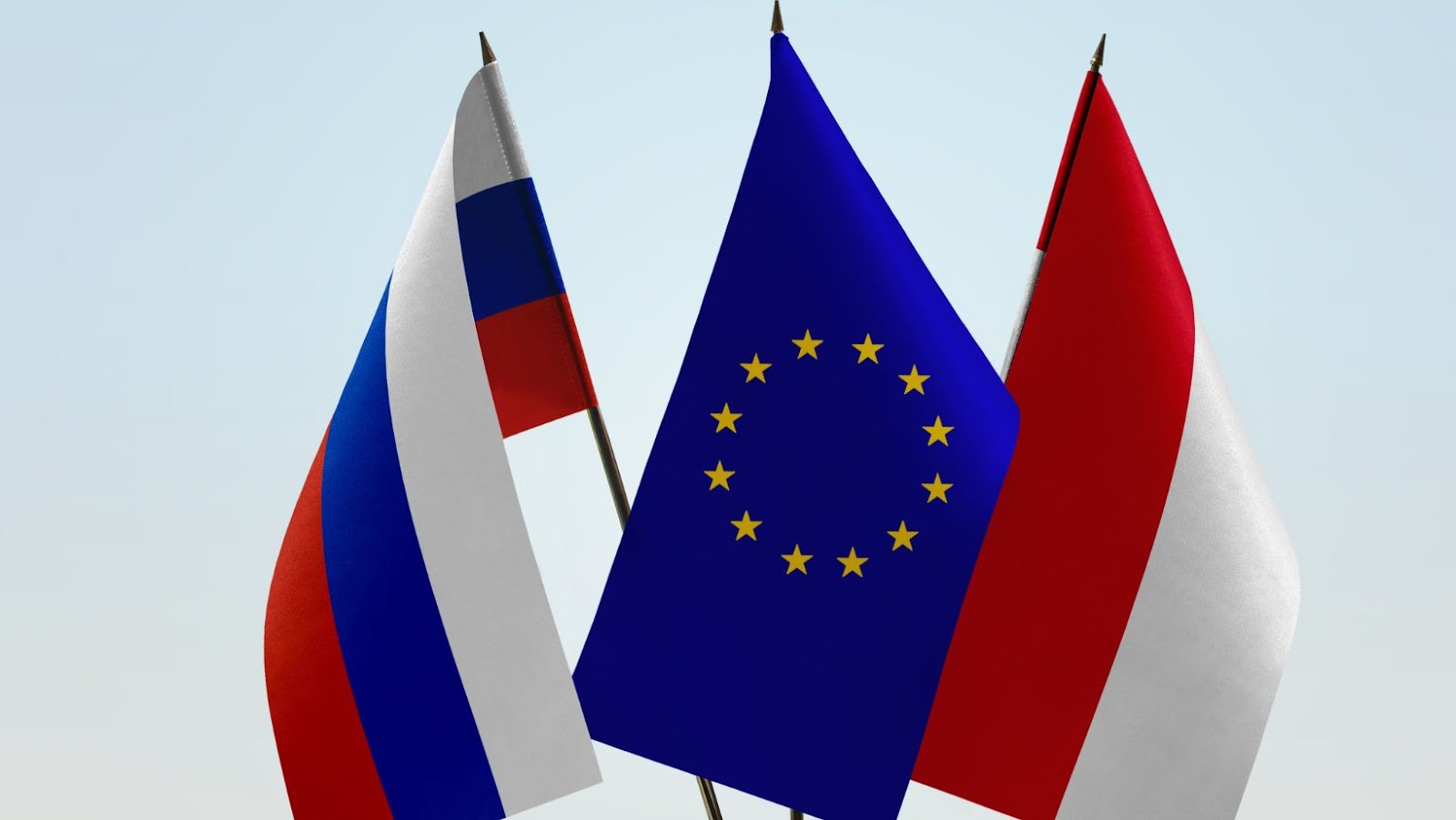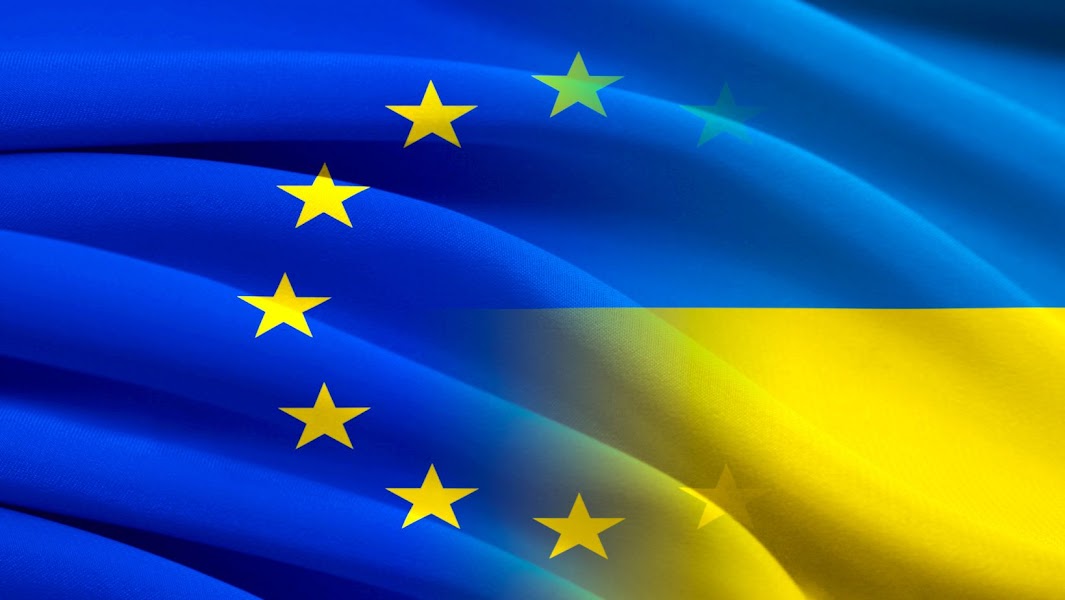
The Ukraine crisis has been one of the most politically charged and significant international conflicts of recent years, with the region posing serious security challenges for the international community. Part of the challenge of resolving the crisis lies in ensuring that the political settlement reflects the aspirations of the Ukrainian people and the interests of its neighbours and international partners.
China has been vocal in promoting a diplomatic settlement of the crisis. This article will examine China’s position on the political settlement of the Ukraine crisis, with particular attention to the need for respect for Ukraine’s sovereignty and territorial integrity.
Overview of the Ukraine Crisis
In 2014, the Ukrainian crisis began when pro-Russian separatist entities backed by the Russian government launched a military campaign to seize control of Ukraine’s eastern regions as part of an effort to incorporate those regions into the Russian Federation. The conflict between Russia and Ukraine has seriously affected Europe’s security and stability. Moreover, it has deeply affected bilateral relations between Russia and Ukraine and complications of regional politics.
The crisis began with a series of protests in 2013-2014 which escalated into unrest in the region shortly after President Viktor Yanukovych fled from Ukraine amid mass demonstrations in 2014. This led to the beginning of a shorter separatist activity, which sparked a full-scale armed conflict between Ukrainian government forces and pro-Russian militants. Despite numerous efforts to broker peace agreements, large parts of eastern Ukraine remain cessations of hostilities where numerous ceasefire violations have occurred since then.
As tensions remain unresolved, international response to developing events changes under external developments within Russia and Ukraine and more broadly across Europe. International law requires respect for Ukraine’s sovereignty and territorial integrity, calling on countries not to recognize any changes made to that territory through acts “inconsistent with international law”. Therefore, every country involved must show respect for these essential principles so that further escalation in the conflict can be avoided.
China’s Position on the Political Settlement of the Ukraine Crisis
China has consistently maintained its position on the political settlement of the Ukraine crisis, stressing the need for respect for Ukraine’s sovereignty and territorial integrity. Furthermore, China has underscored that foreign interference should be avoided in resolving the crisis, and that violence should be stopped to prevent escalating the situation. It has also emphasised the importance of upholding international law and complying with the norms of international relations.
This section will discuss China’s position on the political settlement of the Ukraine crisis in more detail.
Respect for Ukraine’s Sovereignty and Territorial Integrity
The ongoing Ukraine crisis calls for a political settlement to ensure lasting peace and stability in the region. China has consistently supported the need to respect Ukraine’s sovereignty and territorial integrity, leading to a comprehensive peaceful, political and diplomatic solution that reflects the interests of all relevant parties. China has sought to play a constructive role in this process.

China firmly supports an independent Ukraine and is committed to the basic principles of international law and the Charter of the United Nations which upholds respect for sovereignty, territorial integrity, non-interference in internal affairs, peaceful co-existence, equality and negotiation. Therefore, China advocates all parties pursuing a peaceful resolution through equal-footed consultations by seeking common ground while reserving differences based on these international norms, within a political settlement framework on the Ukraine crisis.
In particular, Beijing insists that any scheme should be able to:
- Return immediately to talks on a political settlement based on existing agreements.
- Strengthen coordination among UN Security Council permanent members in pushing forward with such negotiations.
- Promote mutual respect’s full sovereignty.
- Return Ukraine into full compliance with its commitments under Minsk Agreements, thus ending foreign interference into Ukrainian internal affairs and occupation of its territory.
- Repudiate further implementation of illegal unilateral acts per resolutions adopted at the United Nations General Assembly.
China remains open to engaging with other countries in finding acceptable solutions to this issue completely through respecting sovereign rights and territorial integrities thus creating durable peace in Europe.
Commitment to the Norms of International Law
As one of the United Nations’ permanent members, China is firmly committed to international law principles governing relations between states. These principles include, among others, respect for territorial integrity and political independence, peaceful resolution of disputes and non-interference in domestic affairs. In this light, China supports political settlement to the Ukraine crisis based on full respect for Ukraine’s sovereignty and territorial integrity.
China has consistently held that parties involved in the Ukraine crisis should handle the situation through dialogue mechanisms based on international law. Accordingly, at the beginning of March 2014, Chinese President Xi Jinping put forward a five-point proposal on properly settling the issue and preserving regional peace and stability in a telephone conversation with Russian President Vladimir Putin. The core principle contained in these points was: find a solution acceptable to all parties concerned through dialogue and consultation that fully takes into consideration their respective essential concerns in strict accordance with international laws including respecting national sovereignty, unity and territorial integrity as well as properly handling differences to reach a political solution at an early date.
China has also consistently supported mediation efforts by relevant countries or international organisations in upholding peace and stability in Ukraine.
Support for the Minsk Agreements
China is proactively engaged in the political settlement of the Ukraine crisis. China recognizes and respects the independence, sovereignty and territorial integrity of Ukraine. In line with the norms of international law and relevant United Nations Security Council resolutions, China has consistently advocated for a political solution to the issue.
In this regard, China supports the efforts of related parties to reach a comprehensive resolution to the crisis through dialogue and negotiation. In 2014, China actively participated in negotiations on an arrangement on a peaceful resolution following consultations within the framework of the Trilateral Contact Group. Since then, Chinese leaders have consistently called on related parties to strictly abide by and implement all provisions in Minsk Protocols I (2014) and II (2015).
In particular, as a signatory member of Minsk Protocol I (2014), China urges all concerned parties to adhere firmly to stipulations including ceasefire agreement; exchange prisoners; clearing occupied territories; and upholding objectives reaffirmed in Package 1 adopted at France-Germany-Ukrainian Summit held in Paris (October 11th 2018).
Furthermore, at France-Germany-Russian Summit held in Berlin (January 19th 2019), adoption of Package 2 by all concerned parties will help unlock broader Minsk Agreement objectives such as: local elections in E/L Transnistria region after security conditions are ensured; newly defined standards should govern military presence along contact line; ICRC shall be granted access across combat lines; foreign heavy weapon withdrawal must be completed swiftly; Russia shall work towards withdrawal from Ukrainian soil based decisions already made by Russian government.
China will continue promoting political settlement between relevant parties with full respect for Ukraine’s sovereignty and territorial integrity within its internationally recognized borders free from foreign interference.
China’s Position on the Political Settlement of the Ukraine Crisis
The political crisis in Ukraine has been an issue of global concern for many years. China is an important international actor and has an important role in the Ukraine crisis’s political settlement.
To effectively address the crisis, China must show its commitment to respecting Ukraine’s sovereignty and territorial integrity.
This section will discuss China’s position on the political settlement of the Ukraine crisis and the need for respect for Ukraine’s sovereignty and territorial integrity.
Facilitating Dialogue Between Kiev and Moscow
The Ukraine crisis has been a major source of tension between East and West for over five years. Russia’s illegal seizure of Crimea and attempts to stoke separatism in eastern Ukraine are at the heart of the conflict. To resolve the crisis, international actors have sought to promote dialogue between Moscow and Kiev, which has seen both sides resist. Amidst this stalemate, the role of China in facilitating dialogue has become increasingly prominent.

China’s stance on the Ukraine crisis since 2014 has been measured but consistent—respect for Ukraine’s sovereignty and territorial integrity and promotion of peaceful dialogue. China’s public rhetoric often emphasises its “shared vision”. This shared vision is based on values China believes are universally accepted and can provide an important foundation for negotiations– multilateralism, respect for sovereignty, avoidance of unilateral actions, non-interference in internal affairs and peaceful resolution through negotiations despite their divergent views on many matters.
In practice, China has played an active role in supporting diplomatic efforts to resolve the crisis. At times when talks stalled due to differences between Kiev and Moscow – most notably during the Normandy format meetings – China consistently urged all parties to stay committed to stopping violence and addressing each other’s core concerns through a political settlement process facilitated by diplomatic channels. During three fraught rounds of UN Human Rights Council voting from 2018 onwards – attempting to extend the monitoring mandate in Crimea– China opted for abstention rather than risk protracting or deepening divisions by siding with either party over issues such as international law or territorial integrity.
By fulfilling its role as a statesman amongst great powers during these tricky moments, Beijing has demonstrated a willingness to support multilateral processes regardless of which side might gain advantage from their outcome – one distinct sign that diplomacy has precedence over geopolitics or tactical interests in Chinese foreign policy-making at present.
Promoting a Comprehensive Political Settlement
China has insisted on the principle of respect for Ukraine’s sovereignty and territorial integrity in dealing with the crisis in Ukraine. Therefore, China queries pertinent international organisations and parties to positively promote a comprehensive political settlement of the Ukrainian issue.

In this regard, China stresses the following: first, efforts should be made to build trust through dialogue. All concerned parties should actively engage in an inclusive dialogue and negotiation process based on mutual respect and equality, to reach a comprehensive political settlement as soon as possible that suits each side’s interests and serves their common aspirations. Second, it is important to abide by relevant international law standards. All actions taken by any party should fully comply with international law, including UN Charter norms concerning respecting national sovereignty and territorial integrity, thus avoiding further exacerbation of confrontation. Third, all stakeholders should step up their profound understanding of the situation. A full picture of all aspects is key to formulating proper measures that address both sides’ concerns.
In this way, all relevant parties can resume normal order in an orderly manner thereby meaningfully alleviating current tensions throughout Ukraine and assuring its citizens’ legitimate concerns about safety are adequately addressed for long-term stability there so that a peaceful solution leading towards lasting peace gains further traction among all sides’ interests involved in this conflict.
Reaffirming the Principle of Non-Interference
China has consistently supported the sovereignty and territorial integrity of Ukraine. Furthermore, as a permanent member of the United Nations Security Council (UNSC), China has regularly reaffirmed its commitment to uphold existing UNSC resolutions, international law, and the principles of mutual respect to resolve the ongoing crisis in Ukraine.
The Chinese Government has urged all parties to strive for peace and stability in Ukraine. However, a political solution must be grounded on long-term peace and security strategies for all stakeholders involved, especially for the Ukrainian people. Furthermore, close attention must be paid to respecting Ukraine’s sovereignty and territorial integrity.
Chinese President Xi Jinping recently met with his Russian counterpart Vladimir Putin in Beijing. In his statements, Xi Jinping affirmed China’s commitment to upholding existing international law, providing mediation services when needed and respecting the right to self-determination, including non-interference by external parties. He also reaffirmed his support for peaceful resolution processes involving multilateral negotiation frameworks such as Minsk agreements through concrete action and diplomacy between affected parties within a “Ukraine First” principle framework.
In conclusion, different countries should work together to bring about a stable solution to the crisis in Ukraine without resorting to external interference but rather through patient consultation that respects Ukrainian sovereignty and territorial integrity. A unified stand by the international community is critical for upholding global stability and security. It does not allow any country or group of countries to use unilateral sanctions or military action to interfere in other states’ internal affairs or redraw their national boundaries at whim.










